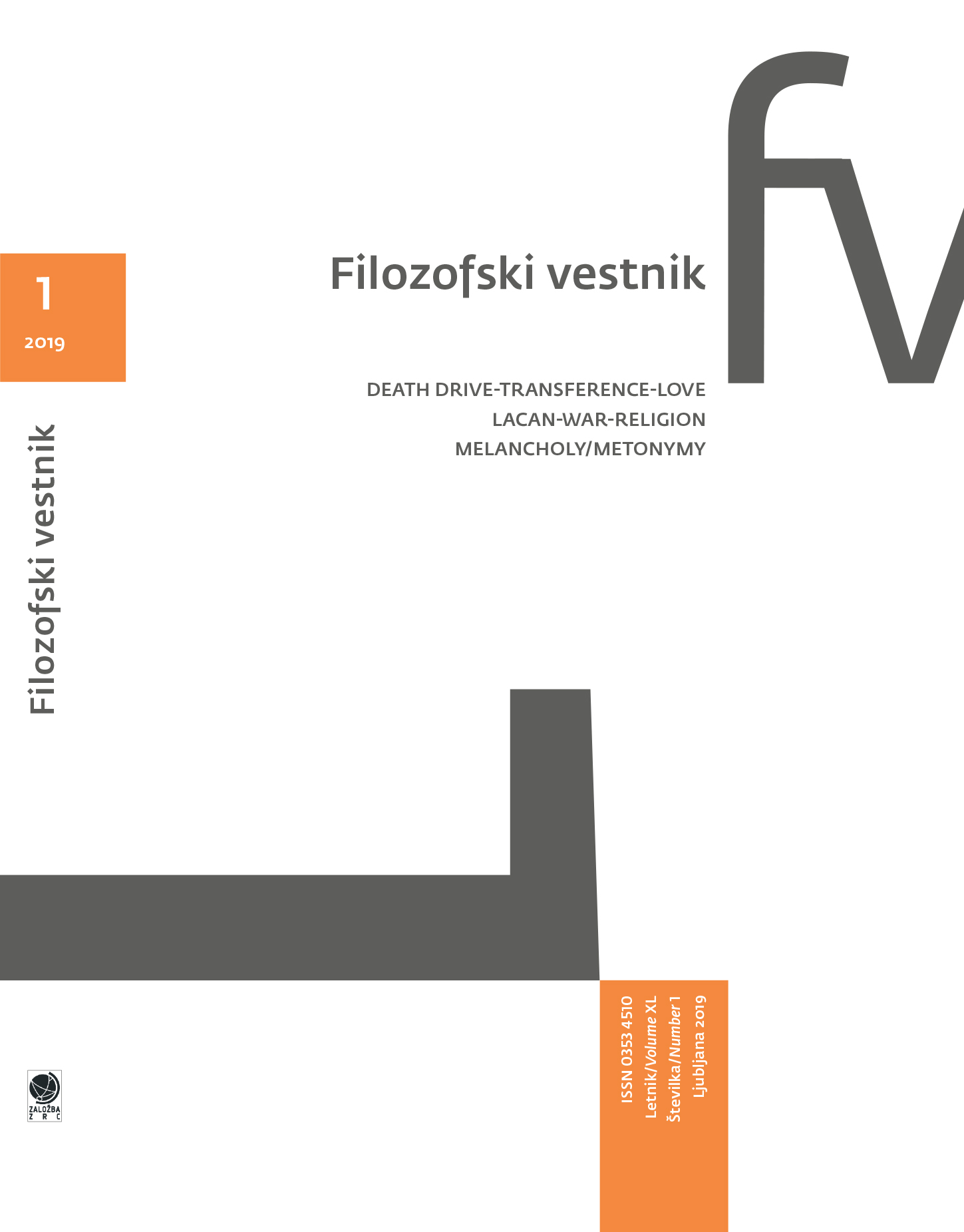Lacanove vojne igre: kibernetika, suverenost in vojna v II. seminarju
Ključne besede:
Lacan, kibernetika, Schmitt, Koyré, Schuhl, KojévePovzetek
Članek ponuja novo branje Lacanove materialistične definicije zavesti iz Seminarja II: Jaz v Freudovski teoriji in psihoanalitični tehniki 1954–1955, ki ga interpretira kot delo politične, celo vojaške, teorije. Če povzamemo argument, članek poskuša umestiti Lacanovo predavanje o miselnem eksperimentu v zgodovinski kontekst ne zgolj pojava povojne kibernetske teorije, temveč v daljšo zgodovino filozofije »stroja«, ki se razteza od Descartesa in Hobbesa vse do sodobnih filozofov kot so Koyré, Schuhl in Kojève. Če ima metafora stroja dolgo zgodovino znotraj filozofske antropologije, kjer je različno uporabljena za rešitev problemov svobodne volje, zavesti itd., pa avtor trdi, da je metafora stroja tudi dolgotrajen politični trop, ki je bil vse od začetka razvit za opis razmerja med suverenostjo in vlado, med pravilom in izjemo ter celo med vojno in mirom. Avtor v zaključku sklene, da Lacanov miselni eksperiment ne dramatizira zgolj fenomenološke nadomestitve suverenega jaza s »strojem« zavesti, temveč politično strmoglavljenje predmoderne suverene osebe s strani »stroja« modernega pravnega, političnega in celo vojaškega reda.
Prenosi
Prenosi
Objavljeno
Kako citirati
Številka
Rubrike
Licenca
Avtorji jamčijo, da je delo njihova avtorska stvaritev, da v njem niso kršene avtorske pravice tretjih oseb ali kake druge pravice. V primeru zahtevkov tretjih oseb se avtorji zavezujejo, da bodo varovali interese založnika ter da bodo povrnili morebitno škodo.
Podrobneje v rubriki: Prispevki





